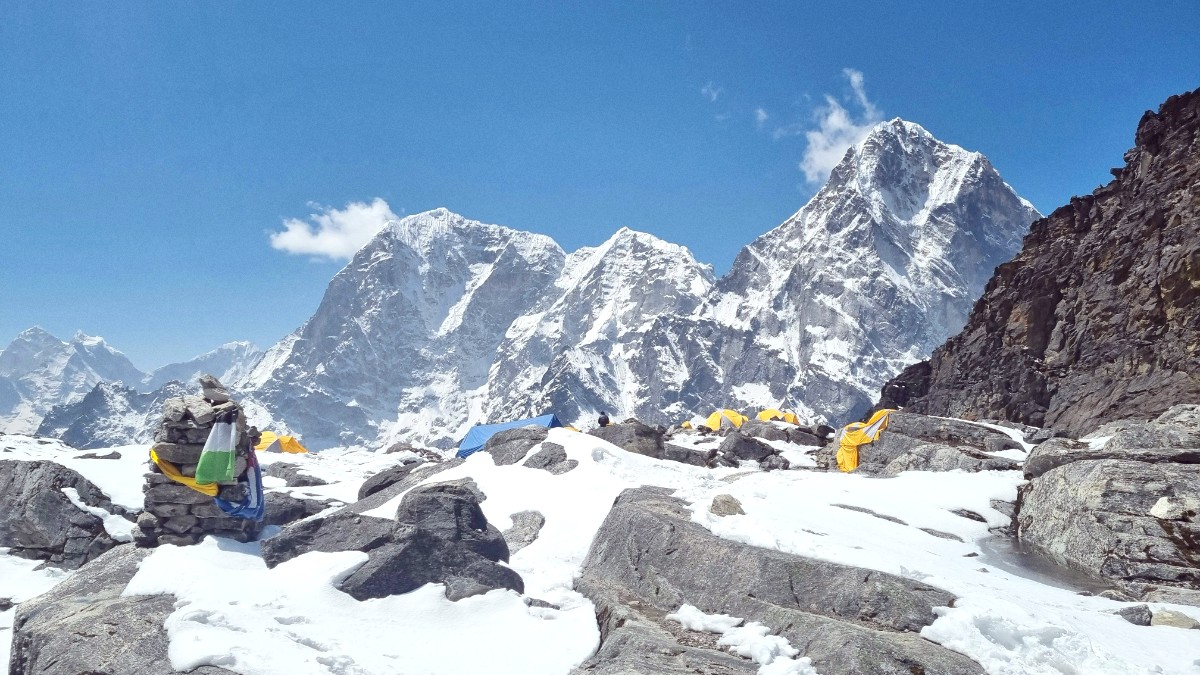
Nepal
The EBC trek falls entirely within Sagarmatha National Park, an UNESCO World Heritage Site. Local and international NGOs support conservation, reforestation, and waste management. Supporting environmentally sound teahouses also contributes.
Waste management in remote mountains poses a challenge. Drastically reduce plastic use. Carry a reusable water bottle and a purification system. Pack out all non-biodegradable waste. Support teahouses with waste management programs. Find reusable products at Package Free Shop.
Water is precious in the mountains. Be mindful of usage in teahouses. Consider purchasing carbon offsets for your flights via reputable organizations like Terrapass. Inquire about eco-friendly accommodation at Ecobnb and ethical tour operators like G Adventures.
The Sherpa people's rich heritage calls for thoughtful interaction to preserve their way of life.
Many local organizations work to preserve Sherpa language, traditions, and historical sites.
Always greet locals with a warm "Namaste" or "Namaskar." Ask for permission before taking photographs of people, especially monks or during religious ceremonies, and honor their decision if they decline. Dress modestly, specifically when visiting monasteries, temples, or walking through villages; cover your shoulders and knees. Remove your shoes before entering monasteries. Walk clockwise around stupas, chortens, mani walls, and other religious monuments.
Be mindful of privacy. Avoid capturing images that might appear exploitative or disrespectful. Focus on the beauty of the landscape and respectful portraits. Respect for local customs and privacy preferences enhances positive interactions.
As noted, follow specific rules like removing shoes, walking clockwise around religious structures, and not touching sacred objects. Maintain a quiet and reverent demeanor while in religious spaces. Your respectful presence deepens the experience for all.
Support businesses that directly benefit local communities. This includes staying in local teahouses, eating at local eateries, and purchasing goods from local shops.
Find community stays at EcobnbWhen buying souvenirs, seek out genuinely local items. Check if the artisan receives fair payment. Avoid items from endangered species. Support conservation efforts with ethical shopping via The Rainforest Site (GreaterGood).
Sustainable gear from PatagoniaPrioritize hiring local Nepali guides and porters. Confirm they receive fair wages, proper gear (especially at high altitudes), sufficient food, and insurance. They form the backbone of the trekking industry and directly support their families.
Responsible travel calls for vigilance against exploitation and intelligent charitable giving to truly support communities.
Be aware of potential exploitation, like child labor or porters carrying excessive loads without proper equipment or fair pay. Select reputable trekking agencies known for ethical practices. Avoid giving money directly to children; instead, direct donations to established local schools or children's charities.
If you wish to donate, do so through recognized local schools, hospitals, or community development projects. This guarantees your contribution reaches those in most need in a sustainable manner, rather than fostering dependency or encouraging begging.
They depend on responsible tourism for their livelihoods. Verify their proper outfitting and fair treatment.
Confirm porters have suitable footwear and warm clothing for high-altitude conditions.
Monitor their loads; ensure they are not excessive and that staff do not appear unwell.
Your trekking agency holds responsibility for the welfare and fair treatment of their staff.
For porters, verify their adequate equipment for the conditions, especially proper footwear and warm clothing. If they carry heavy loads, consider if their load is excessive or if they appear unwell. Your agency bears responsibility for their welfare.